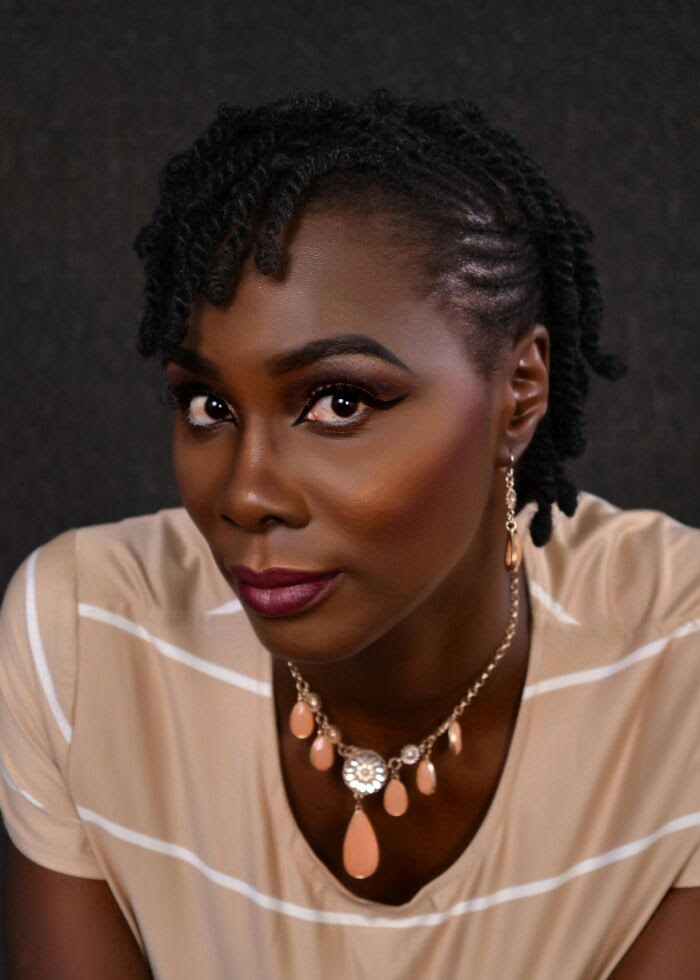Features
Tsema Ede-Okoye: I Am Because We Are
 In the early 2000s, one of my cousins came around seeking admission to study Computer Science at the University of Abuja. His passions were Information Technology and Computers. He was very enthusiastic and certain he would gain admission because his JAMB scores were always above average and he loved Information Technology and wanted to make magic with computers.
In the early 2000s, one of my cousins came around seeking admission to study Computer Science at the University of Abuja. His passions were Information Technology and Computers. He was very enthusiastic and certain he would gain admission because his JAMB scores were always above average and he loved Information Technology and wanted to make magic with computers.
Following multiple failed attempts to get into university in Nigeria, my cousin started to dream of a better life abroad. Nigeria’s flawed education and admission processes had broken him to the extent that he had no fight left inside him to continue seeking for admission. He was still keen on studying Information Technology, but he decided to take this dream abroad. All he needed was an opportunity to prove to himself and to everyone who believed in his dreams, that he was not a failure. He had it within himself to succeed.
Good fortune smiled upon him and he was accepted to an institution in South Africa to study an IT related course. Everyone in the family was elated, nobody deserved this opportunity like my cousin, Ebiyemi. A young Nigerian man with dreams; he was kind, he was a giver, and very industrious. He helped everyone in the family get email addresses then. I remember him every time I log on to my yahoo email.
With joy and expectation, Ebiyemi went to school in South Africa. I was very happy for him. True to his Nigerian resilience, with the ability to thrive in any country, given any circumstance. Ebiyemi completed his studies and found a job doing what he loved. He became an IT pundit with reasonable earnings and began to settle nicely into this new life. Regardless of his financial situation, if his mother or anyone in the family had a need, Ebiyemi would always respond.
One sad day, we got the news that every human being hates to hear about their loved one. We heard that Ebiyemi died. Some people told us that he committed suicide by falling from his apartment building; others told us in confidence that he was allegedly thrown off the balcony by characters who were not happy about his success in their country. The details were not coherent; nothing made sense about the way he died. The police in South Africa did not seem keen on providing us with the information around circumstances that led to his death. Our family was left with questions and a deceased relative.
Ebiyemi left Nigeria, bubbly and full of life, and was returned to us in a casket. News of Ebiyemi’s death was devastating to every member of the family. We learned later that he was probably murdered and deliberately thrown off the balcony. His life was snuffed out in its prime, he was in his mid-20s with big dreams but those dreams did not come true because he was violently taken away from us. I remember Ebiyemi, his dreams, his aspirations, his family. I remember the violence that took him from us in his prime.
When news of renewed xenophobic attacks in South Africa broke out, it came with the pain of realising that Africans, with melanin-rich skin and nappy hair alike, are threatened by their fellow humans because they believe their jobs and economic opportunities are being taken away by migrants from across the continent. I wonder if that is why Ebiyemi was taken from us. I spoke with a friend who lives in South Africa who believes that some xenophobic attacks are politically motivated. Tactics used by political leaders to shift the attention from their shrewd behaviours.
Sadly, these attacks are happening and the right questions are not being asked.
Why do these attacks happen in low-income communities without the understanding of political dynamics in various sectors?
What determines the threat over resources?
Why are Africans like us, with shared stories of oppressions and colonialism, unwilling to identify the unifying elements which strengthen our connections?
Could it be true that the political class is seeking ways to breed hatred and distrust among us, so we keep fighting ourselves? Is this a ploy to deflect from their incompetence, or could it be that years of oppression has made the black community in South Africa unable to identify who or what to direct their anger and frustrations at?
Xenophobia is a dislike or prejudice for people from other countries. It is a fear or hatred of foreigners or strangers. It has been argued that xenophobia and nationalism are reactions to the rise of globalisation. Cross country migration has become a norm and people are looking to live and settle in countries outside their home countries. Nigerians and other Africans alike are migrating for work, love, or new beginnings.
Sadly, following news of xenophobic attacks against other Africans in South Africa, South African owned businesses and franchises in Nigeria were attacked, looted, and destroyed. Nigerians took laws in their hands and exploited an already fragile situation, leading to unfortunate and violent circumstances.
We, as citizens of the World and as Africans, must find other ways to react to oppression and the lack of opportunities.
Violence is not the answer.
More things unite us than divide us: our cultures, different yet similar; our love for colour, music, the arts, and dance are universal. Our traditions which we have passed through generations have evolved, but at the core, our values are the same.
In my journey through life, I have bonded with Africans across the continent and we have established a beautiful sister/brother(hood) which transcends borders.
It is interesting to note that the popular term Ubuntu which originates from Southern Africa is slowly becoming a word and not a philosophy to live by. Ubuntu, often translated as “I am because we are” should mean more to us than it has ever done. Ubuntu is based on the belief in a universal bond that connects all humanity. This is who we are as Africans.
Studying history and learning about past conflicts across the world, they are all borne from the fear of “foreigners”. People are afraid of people who are different. They are afraid of losing their identities.
Is it because we fear what we do not understand, or is it because all foreigners are criminals? The latter cannot be the case, all foreigners cannot be criminals, drug lords, and human traffickers. Are we afraid of seeing things with the possibility that it can be better? Are we afraid of building compromises, improving and evolving and so we shut our minds to the possibility of accommodating diversity?
To deal with these fears, we need to understand and accept people who are different from us. We must allow ourselves to see the human being in the foreigner.
Whilst an eye for an eye might feel right when one is under attack, remember that an eye for an eye leaves everyone blind.
I will end this with a quote from a movie, The Battle For Terra “I believe, I must believe, that in our darkest hour, the very qualities which made us great, will make us strong. That love and mercy will triumph over hate and violence once more”.






















